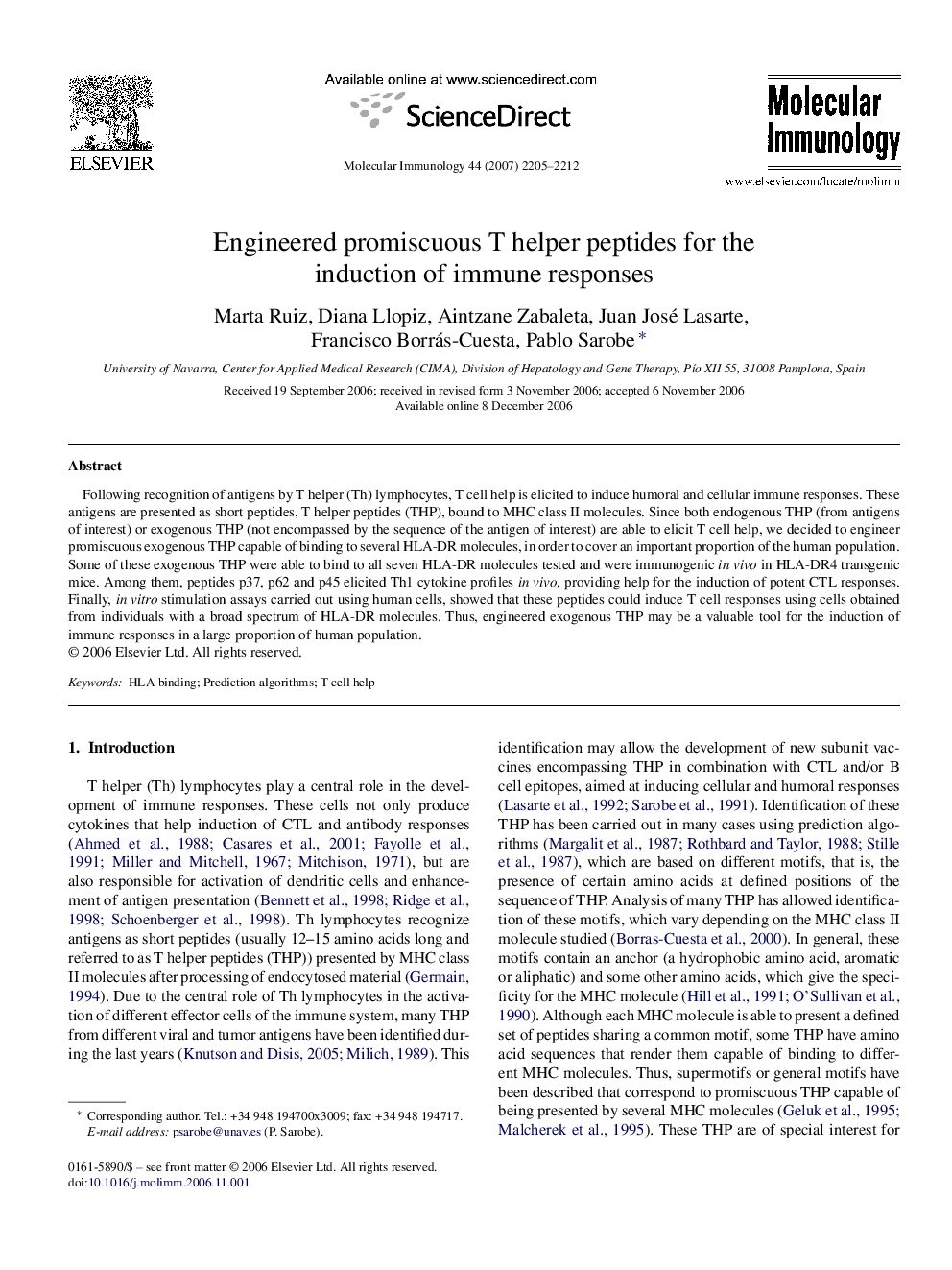| Article ID | Journal | Published Year | Pages | File Type |
|---|---|---|---|---|
| 2832227 | Molecular Immunology | 2007 | 8 Pages |
Abstract
Following recognition of antigens by T helper (Th) lymphocytes, T cell help is elicited to induce humoral and cellular immune responses. These antigens are presented as short peptides, T helper peptides (THP), bound to MHC class II molecules. Since both endogenous THP (from antigens of interest) or exogenous THP (not encompassed by the sequence of the antigen of interest) are able to elicit T cell help, we decided to engineer promiscuous exogenous THP capable of binding to several HLA-DR molecules, in order to cover an important proportion of the human population. Some of these exogenous THP were able to bind to all seven HLA-DR molecules tested and were immunogenic in vivo in HLA-DR4 transgenic mice. Among them, peptides p37, p62 and p45 elicited Th1 cytokine profiles in vivo, providing help for the induction of potent CTL responses. Finally, in vitro stimulation assays carried out using human cells, showed that these peptides could induce T cell responses using cells obtained from individuals with a broad spectrum of HLA-DR molecules. Thus, engineered exogenous THP may be a valuable tool for the induction of immune responses in a large proportion of human population.
Related Topics
Life Sciences
Biochemistry, Genetics and Molecular Biology
Molecular Biology
Authors
Marta Ruiz, Diana Llopiz, Aintzane Zabaleta, Juan José Lasarte, Francisco Borrás-Cuesta, Pablo Sarobe,
